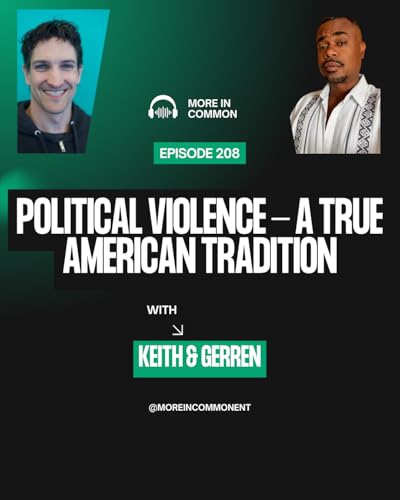
Political Violence - A true American tradition
Failed to add items
Add to basket failed.
Add to Wish List failed.
Remove from Wish List failed.
Follow podcast failed
Unfollow podcast failed
-
Narrated by:
-
By:
About this listen
Summary
In this episode, Gerren Taylor and Keith Richardson engage in a deep conversation about the prevalence of political violence in America, exploring its historical context, societal implications, and the need for honest dialogue. They draw parallels between political violence and addiction, emphasizing the importance of acknowledging the problem to initiate change. The discussion highlights the complexities of political discourse and the necessity for reflection and intervention to address the underlying issues fueling violence in society.
Takeaways
Political violence has a historical presence in America.
Honest conversations are essential for societal progress.
Acknowledging our issues is the first step to resolution.
Political violence is often a reaction to power struggles.
The addiction analogy helps frame our relationship with violence.
We must confront the uncomfortable truths about our society.
Gun culture plays a significant role in political violence.
Generalizations in political discourse can be dangerous.
The need for intervention is critical in addressing violence.
We must recognize our collective responsibility to change.
Sound bites
"This is our addiction."
"We need to start saying, stop it."
"We need to get sober."
Chapters
00:00 Introduction and Context Setting
01:32 Political Violence in America
09:59 The Nature of Political Discourse
18:14 Understanding the Roots of Violence
25:41 The Need for Reflection and Change More In Common Website | https://www.moreincommonent.com/ Instagram | https://www.instagram.com/moreincommonent Twitter | https://twitter.com/MoreInCommonent Facebook | https://www.facebook.com/moreincommonpod



